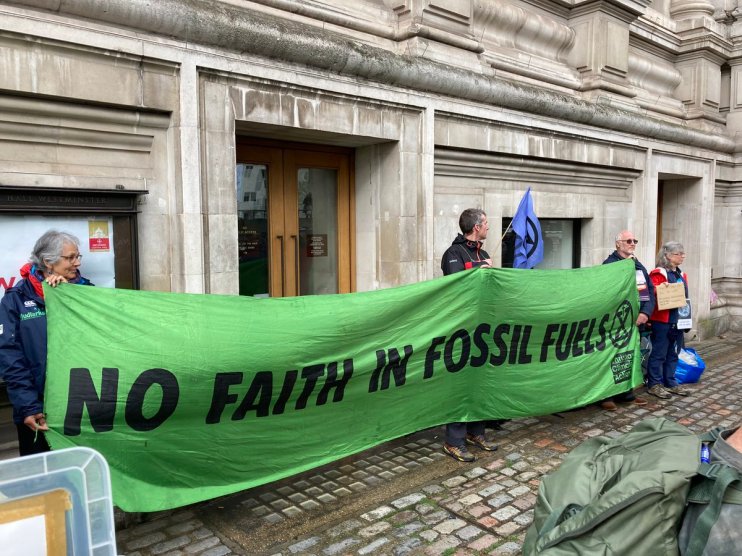Shell urged to set up Ukraine fund after Russian ‘blood money’ trading

Shell is facing calls to set up a repair fund for war-torn Ukraine after continuing to trade in Russian liquefied natural gas (LNG) following the country’s invasion and Western sanctions.
Mark Dixon, founder of the Moral Rating Agency (MRA), has accused the energy giant of supporting Russia’s economy through its lucrative LNG business with the country.
“The billions of dollars of blood money accumulated by Shell in its balance sheet from its Russian activities, they should be paid into a dedicated fund to repair Putin’s damage to Ukraine that is financed by the economy that is being propped up by Shell,” he said.
Shell unveiled a record £32.2bn in full-year profits last year, chiefly powered by soaring oil and gas prices including booming LNG sales as Europe scrambles for supplies amid a Kremlin-backed supply squeeze.
Just over 40 per cent of its full-year earnings came from its integrated gas business, which includes liquified natural gas trading operations.
The unit consisted of almost two thirds of Shell’s £7.73bn profit in the final three months of the year.
MRA is a campaign group names and shames companies operating in Russia, following the country’s invasion of Ukraine last year – putting pressure on energy giants, retail firms and sporting events.
It has accused Shell of “Russian compliance-washing”, with the energy giant continuing to trade Kremlin-backed LNG despite pledging to exit the country last year.
Dixon has further warned the fossil fuel trader it was not “complying with ethics,” even if its activities were permitted within the West’s sanctions regime, which it considered nothing more than a “red-herring.”
He argued that hundreds of companies “have stopped supporting the Russian economy on a voluntary basis when doing so isn’t a criminal offence.”
This follows reports from activists Global Witness that Shell was involved in nearly an eighth of Russian shipborne gas exports last year – first reported by the BBC.
Shell has defended its continued LNG trade in Russia, revealing that its trading in the country is the result of a long-standing commitment.
It told City A.M. the company “made its decision to withdraw from all Russian hydrocarbons with conviction.”
A spokesperson said: “This is in full compliance with sanctions, applicable laws and regulations of the countries in which we operate. We have been clear about this. There is a dilemma between putting pressure on the Russian government over its atrocities in Ukraine and ensuring stable, secure energy supplies. It is for governments to decide on the incredibly difficult trade-offs that must be made.”
The latest controversy centres around Shell’s contract with the Russian LNG company Novatek, which obliges the suppler to buy 900,000 tonnes a year from Yamal until the 2030s, according to news agency Reuters.
However, it has kept taking cargoes of LNG from two Russian ports, the one at Yamal and one at Sakhalin in the far east.
Earlier this year, the energy giant purchased the entire cargo from a tanker capable of containing more than 160,000 cubic metres of gas in liquefied form which pulled out of the Yamal peninsula on 9 May before heading to Hong Kong.
City A.M. understands Shell considers the sanctions regime to be devised specifically to enable continued flows of Russian supplies into Europe to prevent supply shortages, which will be eased over time.
The White House and wider G7 has maintained pathways for Russian trading in its sanctions to ensure the West avoids a supply crunch.
Shell has been proactive in ditching Russian assets over the past 17 months, abandoning its partnership with Gazprom and its minority stake in the Sakhalin gas project, while also wrapping up purchases of Kremlin-backed oil and sales of petrol at Russian service stations.